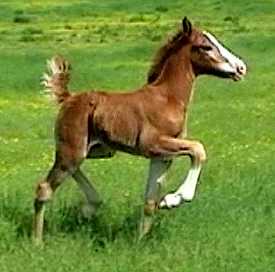 Methicillin-resistant Staphylococcus aureus (MRSA) is a huge problem in people and is an emerging pathogen in horses. Most earlier reports of MRSA in horses involved one strain, called CMRSA-5 in Canada, USA500 in the US, and sequence type 8 (ST8) as a more general term. This human-origin strain seems to be adapted for survival in horses, and in North America, this strain has accounted for most MRSA infections in horses and MRSA infections in people linked to horse contact.
Methicillin-resistant Staphylococcus aureus (MRSA) is a huge problem in people and is an emerging pathogen in horses. Most earlier reports of MRSA in horses involved one strain, called CMRSA-5 in Canada, USA500 in the US, and sequence type 8 (ST8) as a more general term. This human-origin strain seems to be adapted for survival in horses, and in North America, this strain has accounted for most MRSA infections in horses and MRSA infections in people linked to horse contact.
Another MRSA strain, ST398, has recently emerged as a big problem associated with livestock (particularly pigs). This strain is very common in pigs internationally, and is a major cause of infections in people in some European countries. There are also a few reports of ST398 in horses. Most are from Europe, although we have found this strain in one horse in North America. At last week’s ASM Conference on Antimicrobial Resistance in Zoonotic and Foodborne Pathogens in Toronto, Dr. Engeline van Duijkeren from the Netherlands presented a case of human ST398 infection linked to a horse.
In the reported case, a 16-year-old girl had a lesion on her foot that was initial diagnosed as a spider bite infection (a common misdiagnosis of early MRSA skin infections). It didn’t respond to initial treatment and MRSA was isolated on culture. The girl didn’t have any history of contact with pigs or cattle, but had close contact with a foal. That foal had previously been in an equine hospital because of a wound infection, but the wound was not cultured. The same MRSA strain that caused the infection in the girl, however, was found in the foal’s nose (the prime site for MRSA carriage by healthy horses). Fortunately, the girl’s infection responded to treatment once treatment was adjusted for MRSA.
In some ways, this case is not too surprising, since we know ST398 MRSA can cause disease in people, and since it is found in horses, transmission from horses to people was likely inevitable. However, it’s the first report of human infection with this strain associated with horse contact. MRSA exposure is a potential risk for anyone working with horses, since we know that this organism can be found in a small percentage of healthy horses. We don’t have great information about how to prevent horse-human transmission, but simple things like only using antibiotics when needed and attention to hygiene (especially hand washing) when working with horses are presumably important factors.
More information about MRSA in horses can be found on the equIDblog Resources page.
This Worms & Germs blog entry was originally posted on equIDblog on 14-Jun-10.